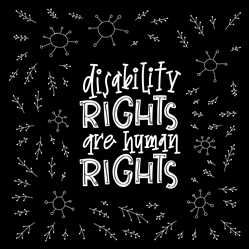
I was shocked that in the year 2023, an otherwise healthy individual was denied donating much-needed blood simply because he needed minimal assistance to get up on the donation bed
CLEARWATER, Fla. (PRWEB)
March 06, 2023
According to The Arc (1), people living with a disability face discrimination, segregation, and exclusion from education, employment, community living, and routine daily activities.
Fortunately, Matthew, a young adult living in Florida, isn’t one to put up with being excluded. Matthew turned 16 in February and had big plans to celebrate by giving blood for the first time. As a lifelong Tampa Bay Lightning fan and big-time Victor Hedman fan, Matthew hoped to encourage 77 others to join him in honor of his hockey hero, who wears the #77 jersey.
Unfortunately, when he arrived at the blood collection center in his community on his birthday along with 20-25 of his supporters and prospective donors, he was told people who couldn’t independently get up on the donor bed couldn’t donate because of a Food and Drug Administration (FDA) requirement. Matthew, who has cerebral palsy, uses a wheelchair and can assist in transfers but needs a little help to get there.
“I was discouraged and sad because I had waited for years for this moment. Everyone there knew I was in a wheelchair before I got there. It wasn’t nice for them to deny me saving lives when I was ready and able to donate my blood,” said Matthew.
Matthew, his mother, and his former teacher and IntellectAbility Inside Sales Representative, Grace Gould, knew this wasn’t right. “I was shocked that in the year 2023, an otherwise healthy individual was denied donating much-needed blood simply because he needed minimal assistance to get up on the donation bed,” said Grace. “What about the organization’s responsibility for complying with the ADA (Americans with Disabilities Act)?”
They researched blood donation regulations, sent emails and received confirmation from the FDA’s Office of Blood Research and Review (OBRR) that there are no federal rules about one’s ability to independently get on or off the blood donation bed. Armed with this information, they returned to the blood collection center, which reconsidered its previous decision and issued a policy clarification referred to as “Matthew’s Memo,” indicating people can be assisted by their own supporters onto the donation bed. And as soon as the mandatory waiting period after being rejected as a donor is up, Matthew plans to be there, front and center, to donate.
“We applaud Matthew, his parents, and his supporters for their perseverance. And we encourage others to advocate for people with disabilities. And, as we celebrate National Cerebral Palsy Month, we recognize and salute the countless direct supporters who work to advocate for and enhance the lives of people with disabilities every day,” said Dr. Craig Escudé, IntellectAbility President.
To learn more about Matthew, click here https://replacingrisk.com/matthews-memo-an-advocacy-success-story/
About IntellectAbility
IntellectAbility provides tools and training to agencies, governmental entities, and supporters of people with intellectual and developmental disabilities to foster early recognition and mitigation of health risks, thereby improving health and wellness. One such tool is the Health Risk Screening Tool (HRST), of which they are the sole developer, producer, and distributor. The web-based HRST is the most widely used and validated health risk screening instrument for people with intellectual and developmental disabilities. IntellectAbility also provides numerous health-related and person-centered service training for supporters of people with IDD. With an unrelenting focus, IntellectAbility works to fulfill its mission of improving health and quality of life for people with intellectual and developmental disabilities and other at-risk populations. For more information, visit http://www.ReplacingRisk.com.
Source:
1) The Arc. 2023. https://thearc.org/about-us/mission-values/
Share article on social media or email:

